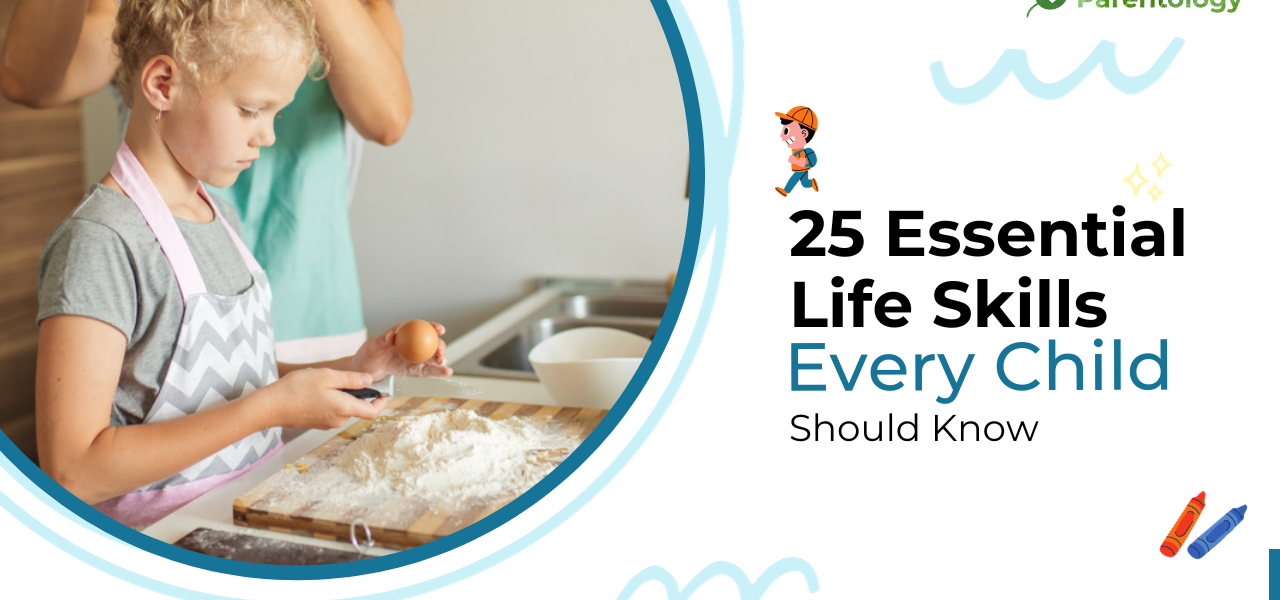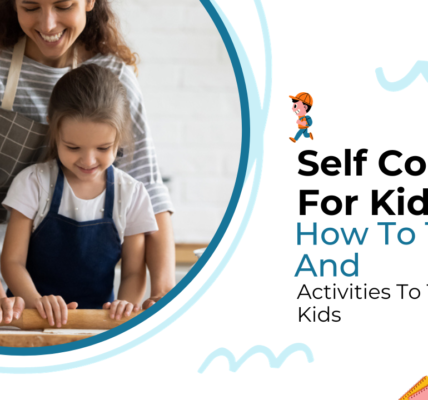Empowering Futures: 25 Essential Life Skills Every Child Should Know
Welcome to a transformative exploration of essential life skills for kids. As we navigate the intricate web of personal, social, emotional, and practical skills, our goal is to unlock the full potential of every child. Buckle up for a journey that goes beyond the ordinary, delving into the vibrant realm of childhood development.
The Importance of Life Skills for Kids
Life skills are the building blocks that lay the foundation for a child’s future success. From academic achievements to personal relationships, these skills play a pivotal role in shaping a well-rounded individual. Let’s delve into why instilling life skills in children is a game-changer.
The Life Skills kids should learn-
In the ever-evolving landscape of education, imparting life skills to children is a crucial aspect of their holistic development. As parents and educators, we play a pivotal role in equipping the younger generation with the tools they need to navigate the complexities of life. In this comprehensive guide, we delve into 25 essential life skills every child should know, ensuring they not only thrive academically but also grow into resilient, empathetic, and well-rounded individuals.
1. Communication Skills
Effective communication is the cornerstone of success. Teach your child to express thoughts and feelings clearly, listen actively, and communicate with confidence.
2. Emotional Intelligence
Help children understand and manage their emotions, fostering empathy and resilience. Emotional intelligence is a key factor in building meaningful relationships.
3. Problem Solving
Encourage critical thinking and problem-solving abilities. Teach kids to approach challenges with a positive mindset and find creative solutions.
4. Decision Making
Guide children in making informed decisions. Instill the importance of weighing pros and cons, considering consequences, and taking responsibility for their choices.
5. Time Management
Equip kids with the skills to manage time effectively, balancing academics, extracurricular activities, and downtime. This sets the foundation for a disciplined and organized life.
6. Adaptability
In a rapidly changing world, adaptability is crucial. Teach children to embrace change, be flexible, and navigate uncertainties with resilience.
7. Financial Literacy
Introduce basic financial concepts to instill a sense of responsibility. Teach budgeting, saving, and the value of money to lay the groundwork for future financial success.
8. Teamwork and Collaboration
Foster a collaborative spirit by engaging kids in group activities. Emphasize the importance of teamwork, effective communication, and respecting diverse opinions.
9. Critical Thinking
Nurture analytical thinking by encouraging kids to question, analyze information, and form independent opinions. Critical thinking is a valuable skill for academic and personal success.
10. Conflict Resolution
Teach kids peaceful conflict resolution strategies. These skills include active listening, compromise, and finding common ground to maintain healthy relationships.
11. Digital Literacy
In the age of technology, equip children with digital literacy skills. Teach them responsible internet use, online safety, and the basics of coding for a tech-savvy future.
12. Resilience
Cultivate resilience by encouraging children to bounce back from setbacks. Instill the belief that failures are opportunities for growth and learning.
13. Self-Confidence
Build self-confidence by acknowledging achievements and encouraging a positive self-image. A confident child is more likely to face challenges with courage and determination.
14. Self-Care
Teach the importance of self-care, including physical, mental, and emotional well-being. Instill habits like regular exercise, proper nutrition, and mindfulness.
15. Empathy
Foster empathy by encouraging children to understand and share the feelings of others. Empathetic individuals contribute positively to society and form meaningful connections.
16. Negotiation Skills
Introduce basic negotiation skills to children. This helps them navigate various social situations, understand different perspectives, and reach mutually beneficial agreements.
17. Creativity
Encourage creative thinking by providing opportunities for artistic expression, problem-solving, and exploring new ideas. Creativity is a valuable asset in all aspects of life.
18. Independence
Foster independence by gradually allowing children to take on age-appropriate responsibilities. This builds a sense of autonomy and self-reliance.
19. Networking
Teach the importance of building a network. While age-appropriate, guide kids in forming positive connections that can open doors to opportunities in the future.
20. Cultural Competence
Instill respect for diverse cultures and perspectives. Cultural competence is essential in today’s globalized world, promoting harmony and understanding.
21. Patience
Develop patience as a virtue. Teach children to wait, persevere, and understand that not everything happens instantly.
22. Environmental Awareness
Cultivate a sense of responsibility towards the environment. Teach kids about sustainable practices and the importance of protecting our planet.
23. Leadership Skills
Encourage leadership qualities by giving children opportunities to take charge, make decisions, and guide others in collaborative activities.
24. Civic Responsibility
Instill a sense of civic responsibility. Teach kids about their role in society, the importance of community service, and being responsible citizens.
25. Gratitude
Foster gratitude by encouraging kids to appreciate the people, experiences, and opportunities in their lives. Grateful individuals often lead more fulfilling lives.
FAQs About Life Skills for Kids
Q1: Why are life skills important for children’s development?
Ans 1: Life skills contribute to holistic development, shaping children into well-rounded individuals capable of navigating life’s challenges.
Q2: How can parents incorporate life skills into daily routines?
Ans 2: Parents can integrate life skills through daily activities, discussions, and setting examples that reinforce positive behaviors.
Q3: At what age should children start learning life skills?
Ans 3: Life skill development can begin in early childhood, with age-appropriate lessons adjusted as children grow.
Q4: Are all 25 life skills equally important, or are some prioritized?
Ans 4: While all skills are valuable, prioritizing depends on a child’s age, interests, and individual needs.
Q5: Can life skills be taught in schools, or is it primarily a parental responsibility?
Ans 5: Both parents and schools play crucial roles in imparting life skills, creating a collaborative approach to a child’s development.
Q6: How can technology be integrated into teaching life skills for kids?
Ans 6: Educational apps, interactive platforms, and online resources can complement traditional methods, making learning engaging and effective.
Q7: Is it possible for children with learning disabilities to develop life skills?
Ans 7: Yes, with tailored approaches and supportive environments, children with learning disabilities can acquire and develop life skills.
Q8: Can life skills be culturally specific, or are they universally applicable?
Ans 8: While some skills have universal relevance, cultural competence is vital for understanding and respecting diverse perspectives.
Q9: Are there specific resources or books recommended for teaching life skills to children?
Ans 9: Yes, various books and resources cater to specific age groups, offering engaging activities and lessons to enhance life skills.
Q10: How can parents evaluate their child’s progress in acquiring life skills?
Ans 10: Observation, open communication, and feedback from teachers can help parents assess their child’s development in various life skills.
Conclusion
In nurturing the next generation, empowering children with life skills is an investment in their future success and well-being. As parents and educators, we have the privilege of shaping young minds, instilling values, and fostering the development of skills that transcend academic achievements. The journey to equip children with essential life skills is a collaborative effort, blending creativity, positivity, and a commitment to building a brighter tomorrow.
For further insights and resources on parenting and child development, explore Parentology—your partner in raising resilient, empowered, and well-rounded individuals.





